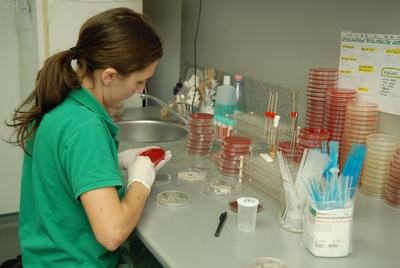At least 33 people have been sickened with Salmonella Enteritidis linked to ground beef from a Cargill plant in Pennsylvania.
Although the onset of illness happened during the week of June 6, 2012, it took six weeks of sleuthing to link illnesses in five case-patients to the ground beef products produced at this establishment based on epidemiologic and traceback investigations, as well as in-store reviews.
Two of the five case-patients were hospitalized. Leftover product with no packaging information collected during the course of this investigation by the Vermont Department of .jpg) Health tested positive for the outbreak strain of Salmonella Enteritidis. This outbreak strain of Salmonella Enteritidis is drug sensitive, meaning antibiotics can be effective in treating patients who need them
Health tested positive for the outbreak strain of Salmonella Enteritidis. This outbreak strain of Salmonella Enteritidis is drug sensitive, meaning antibiotics can be effective in treating patients who need them
"Foodborne illnesses are unfortunate and we are sorry for anyone who became sick from eating ground beef we may have produced," stated John Keating, Cargill Beef president. "Ensuring our beef products are safe is our highest priority and an investigation is underway to determine the source of Salmonella in the animals we purchased for harvest and any actions necessary to prevent this from recurring."
Cargill Beef, a business unit of Wichita-based Cargill Meat Solutions Corporation, announced the Class I voluntary recall of approximately 29,339 pounds of 85-percent-lean, fresh, ground beef produced at the company’s Wyalusing, Penn., facility on May 25, 2012, due to possible contamination with Salmonella Enteritidis.
The products subject to recall, sold wholesale and for further processing:
• 14 pound chub packages of "Grnd Beef Fine 85/15", packed 3 chubs to approximate 42-pound cases.
The ground beef involved was repackaged for sale to consumers by Cargill’s customers. For a list of packages associated with this recall, consumers should refer to the USDA recall website at:www.fsis.usda.gov/FSIS_Recalls/index.asp.


.jpg) The Food Standards Agency (FSA) said
The Food Standards Agency (FSA) said